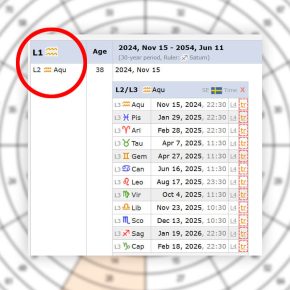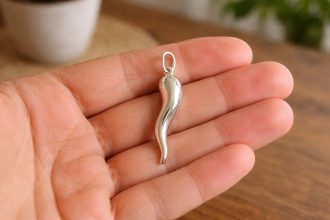Pendulums are powerful tools for connecting with your intuition. They can bring clarity, focus, and a sense of reassurance. But like any spiritual practice, they can be pushed too far.
If you’re reaching for your pendulum over every little decision or asking the same question again and again until you get the answer you want, that’s a sign of overuse. And when that happens, the guidance you receive is more likely to be clouded or misleading.
Do People Overuse Pendulums?
Absolutely. Many people fall into the habit without realizing it. Pendulums work best when approached with respect, patience, and balance. They’re great for reflection, meditation, or guidance on meaningful questions. But if you find yourself pulling it out for every decision, from what to wear to what to eat, you may be slipping into dependence rather than spiritual practice.
Another trap is asking the same question repeatedly until the pendulum swings your way. That’s no longer divination; that’s bargaining. When you do that, the pendulum isn’t guiding you… it’s echoing your own wishful thinking.
Signs You Might Be Overusing Your Pendulum
Overuse isn’t always dramatic or obvious. It can creep in slowly, until one day you realize you’re leaning on your pendulum more than your own intuition.
Instead of building confidence, it starts to quietly undermine it. Instead of clarity, you’re left with confusion. Here are some signs that your pendulum practice may have tipped into overuse:
- You use it for trivial questions. If you’re asking about what snack to eat, what outfit to wear, or which playlist to put on, the pendulum is no longer a spiritual tool… it’s a stand-in for everyday decision-making. These kinds of questions dilute the energy and reduce the pendulum’s effectiveness.
- You repeat questions until you get the “right” answer. This is one of the clearest red flags. If you don’t trust the first response and keep asking until the pendulum swings your way, you’re not seeking guidance… you’re trying to bend the answer to fit what you already want.
- You struggle to decide without it. When every choice feels impossible unless you consult the pendulum, it’s become a crutch. A pendulum is meant to support your intuition, not replace it.
- The answers feel muddled or inconsistent. Using it too often can cloud your results. Your own restless energy seeps into the swing, creating answers that feel vague, contradictory, or just “off.”
- You feel uneasy or anxious without it. If leaving your pendulum at home makes you feel lost or insecure, that’s a sign of dependence. Spiritual tools are meant to empower you, not make you feel powerless without them.
How to Use Your Pendulum Responsibly
Pendulums are most powerful when used sparingly and intentionally. Here’s how to keep your practice healthy:
- Set limits. A few times a week is plenty. Using it for every decision only muddies the waters.
- Ground yourself first. Calm your mind before starting. Anxious or restless energy interferes with the swing.
- Ask clear questions. Go beyond yes/no. Try: “What step would support me most right now?”
- Accept the first answer. If you don’t like it, don’t keep asking. Instead, reflect on why it feels uncomfortable.
- Cross-check big decisions. Use journaling, meditation, or tarot alongside the pendulum for confirmation.
- Blend it with your intuition. Remember, the pendulum is just a mirror of your inner knowing. If your gut disagrees, trust yourself first.
Trust Above All
A pendulum is a tool, not a master. It’s there to help you access the wisdom you already carry, not to replace it. When you lean on it too heavily, you risk silencing the very intuition it’s meant to support.
Use your pendulum with intention. Save it for questions that truly matter, and allow both the tool and yourself space to rest. If you find yourself reaching for it over every little decision, that’s not guidance, it’s overuse. And always remember: the pendulum isn’t the source of wisdom. The real answers don’t swing on a chain; they rise from within you. That inner voice has always been your truest guide.












